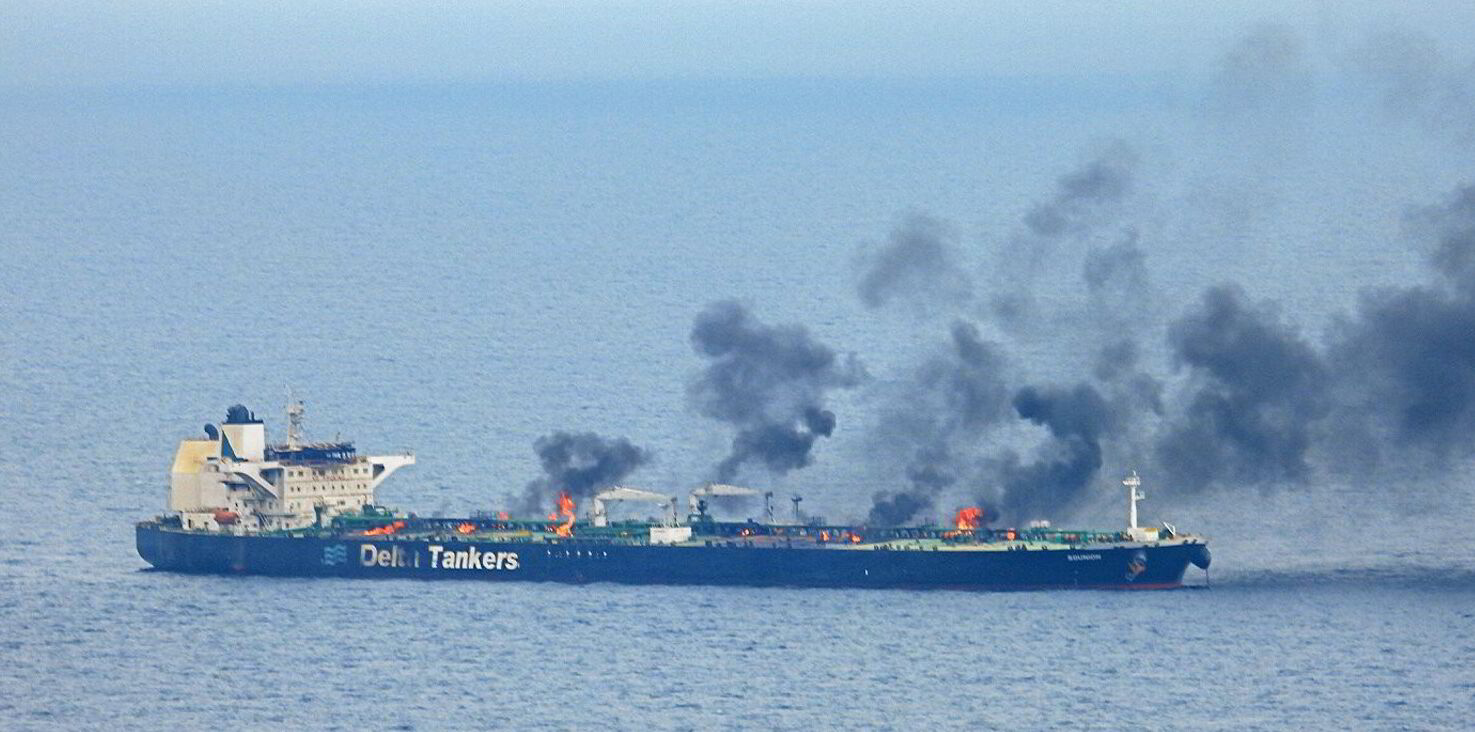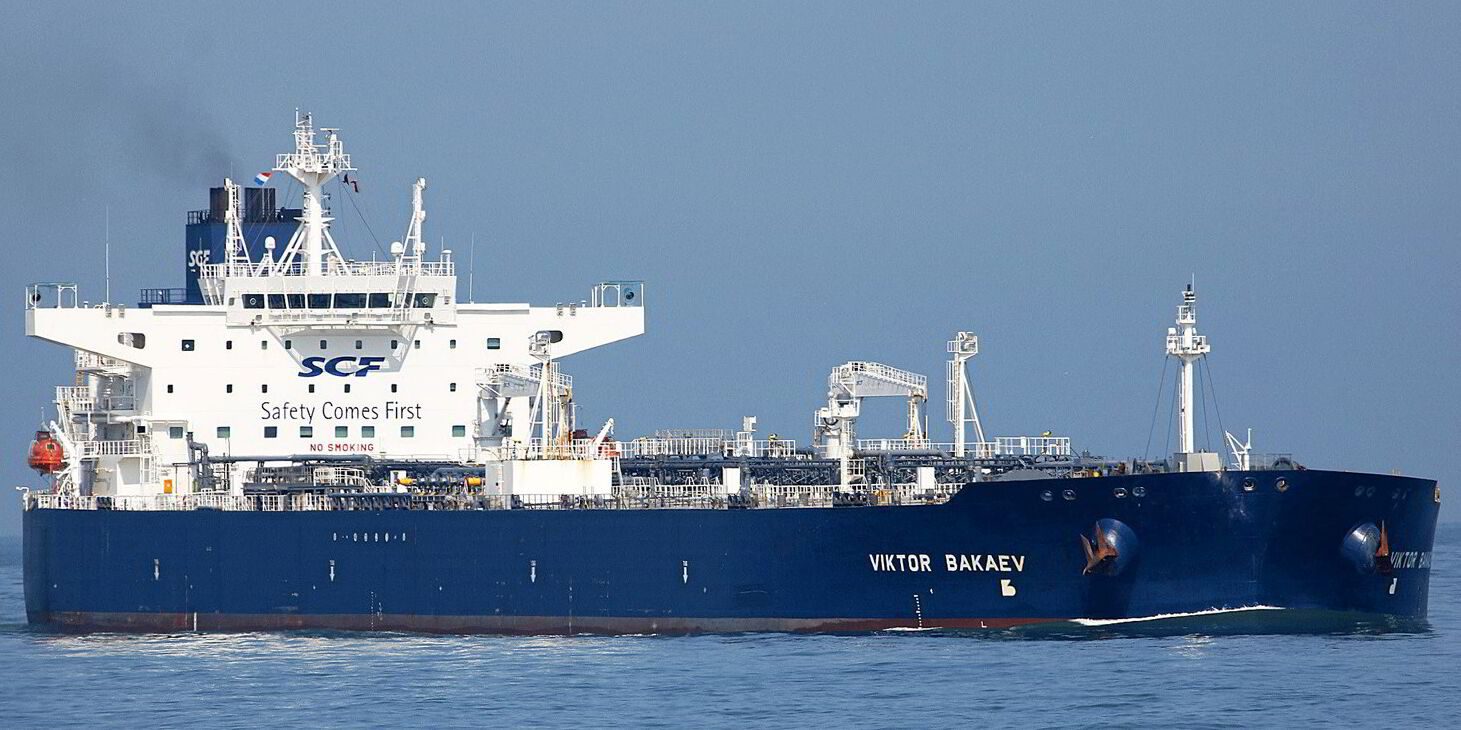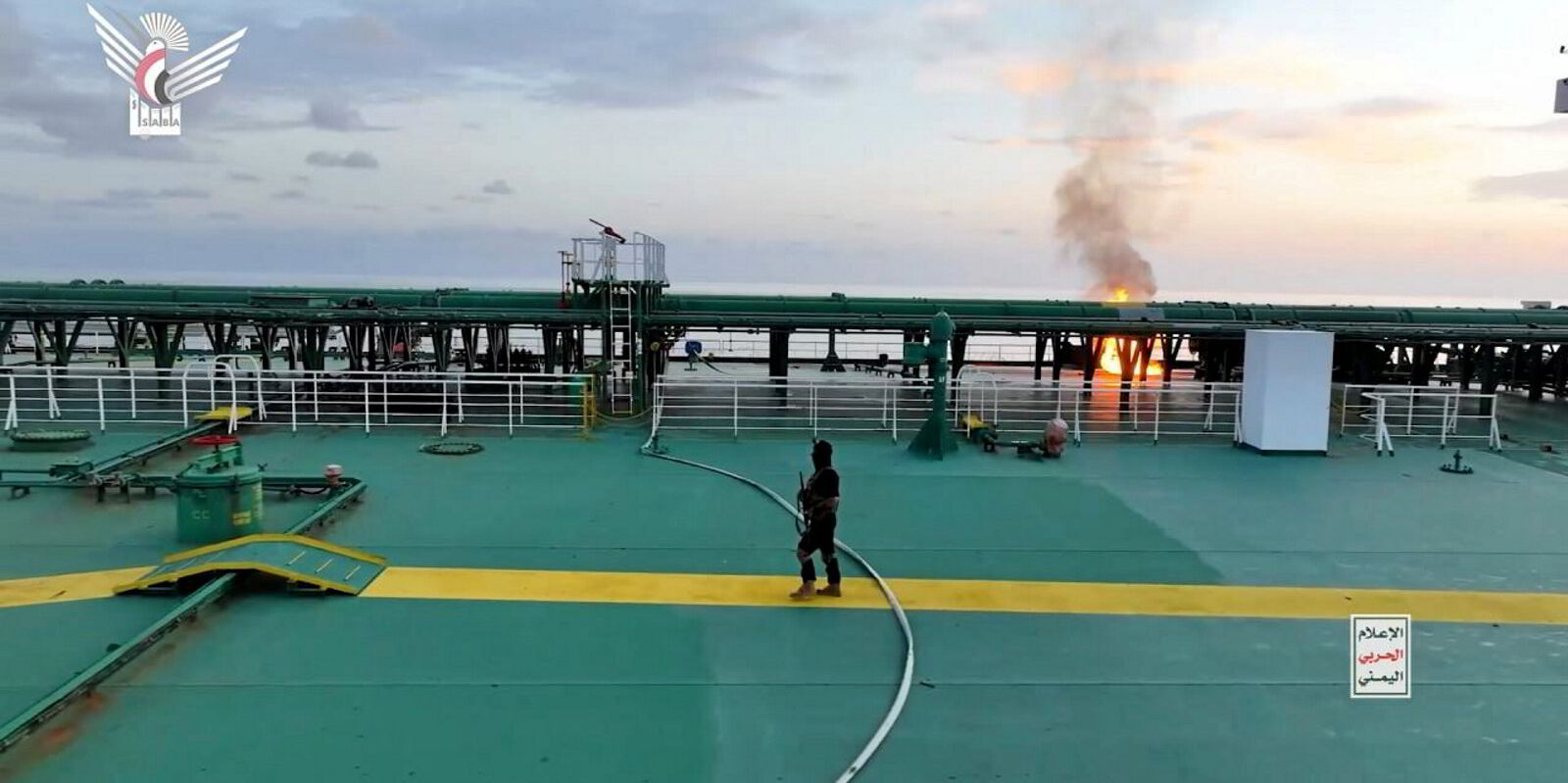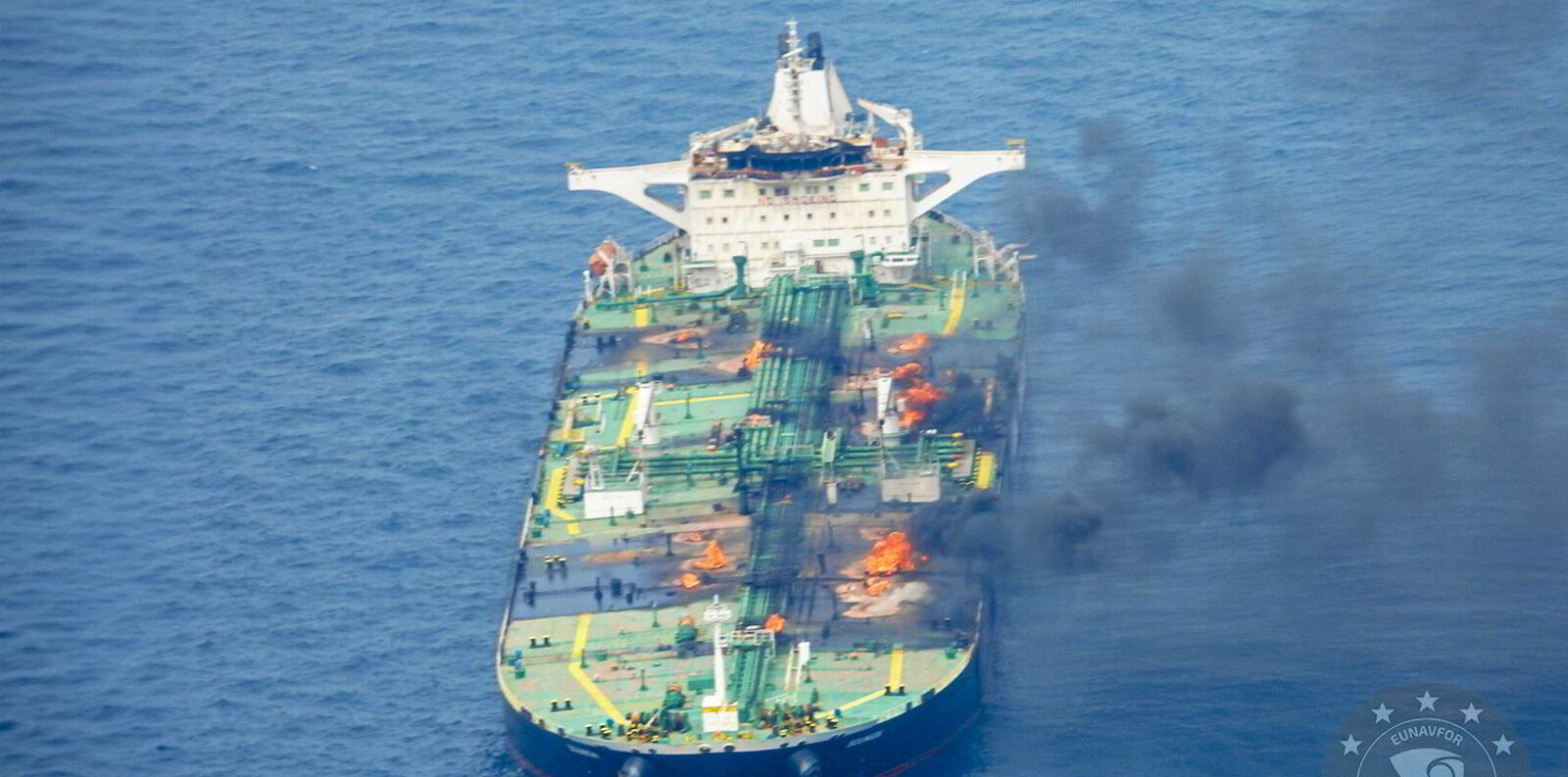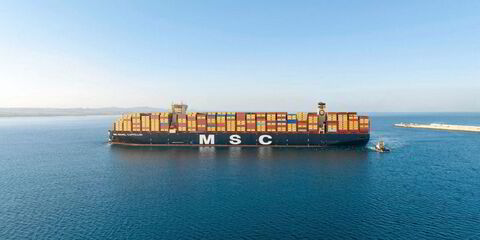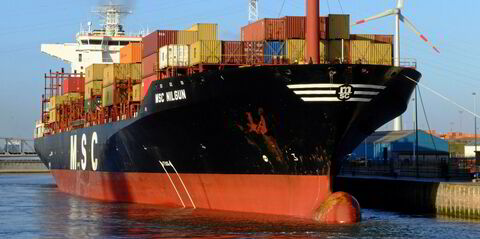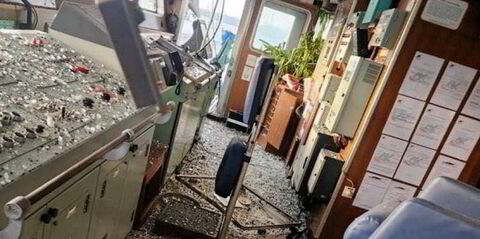The US alone is estimated to have spent more than $1bn — and that was in June — to confront the Houthi menace on shipping.
But the crisis facing a Delta Tankers vessel burning in the Red Sea has highlighted that the strategy has not stopped the violence, and some think tanks say it will not bring an end to the attacks on maritime commerce.
Foreign policy analyst Jonathan Hoffman and research associate Benjamin Giltner, of the libertarian-leaning Cato Institute, said Washington’s strategy “isn’t working” despite what the US Navy has described as the most intense sea battle since World War II.
“There are no vital US national interests at stake in Yemen that justify this level of American military involvement, or the billions of dollars of US taxpayer money being squandered,” they wrote in a Friday article in the online magazine Responsible Statecraft.
“Instead, the best option is for Washington to end its aimless tit-for-tat exchanges with the Houthis and recognise that its emphatic embrace of Israel’s war in Gaza is destabilising the broader region to the detriment of US interests.”
They said a ceasefire in Gaza holds the best chance of ending the attacks.
But the Dubai-based Emirates Policy Center, a leading think tank in the region, is not so sure that even an end to the war in Gaza would stop the attacks.
“The Houthi attacks against shipping lanes in the Red Sea and the Gulf of Aden have used the Israeli war on the Gaza Strip as a pretext. However, the likelihood that these attacks will cease when the war ends or if a long-term truce is reached remains uncertain,” the organisation’s Asia Research unit wrote.
‘Attacks will continue’
“In fact, many international observers believe that there is an increasing probability that these attacks will continue over time. It appears that these attacks have begun to acquire their own dynamics as time goes by.”
The centre, which is independent but seen not to stray far from the official policy of the United Arab Emirates, said Yemen’s Houthi rebels are likely to continue leveraging threats against shipping in various contexts.
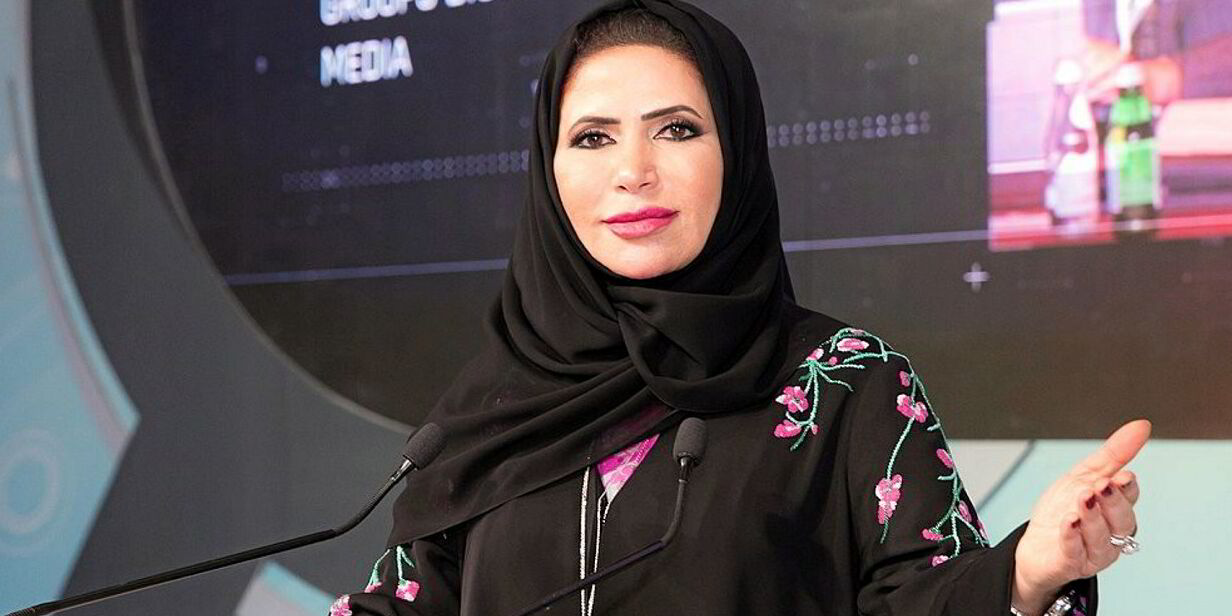
Its analysis explored three scenarios for possible escalation of the Houthi threat but determined that the status quo is the most likely course, as regional and international powers seek to avoid transforming the situation into a wider conflict.
“Several regional and international powers believe that this will pose a long-term challenge to regional security and could disrupt global supply chains indefinitely,” the Emirates Policy Center wrote.
“The future security of shipping in the Red Sea will hinge on the adoption of a new, comprehensive strategy to address threats rooted in regional tensions, including the ongoing conflict between Israel and its Western allies on the one hand, and Iran and its regional axis on the other.”
The Baker Institute for Public Policy at Rice University in Houston said on Thursday that the attacks on shipping have raised the Houthis’ profile and acted as a “new and perhaps unique form of targeted economic sanctions” by selectively targeting vessels.
The think tank, named for former US secretary of state James Baker, noted that international efforts to deter the Houthis have not been successful.
But in an issue brief, the Baker Institute researchers were more optimistic that a Gaza ceasefire could lead to a halt in Houthi attacks, though they acknowledged that there is disagreement on that point.
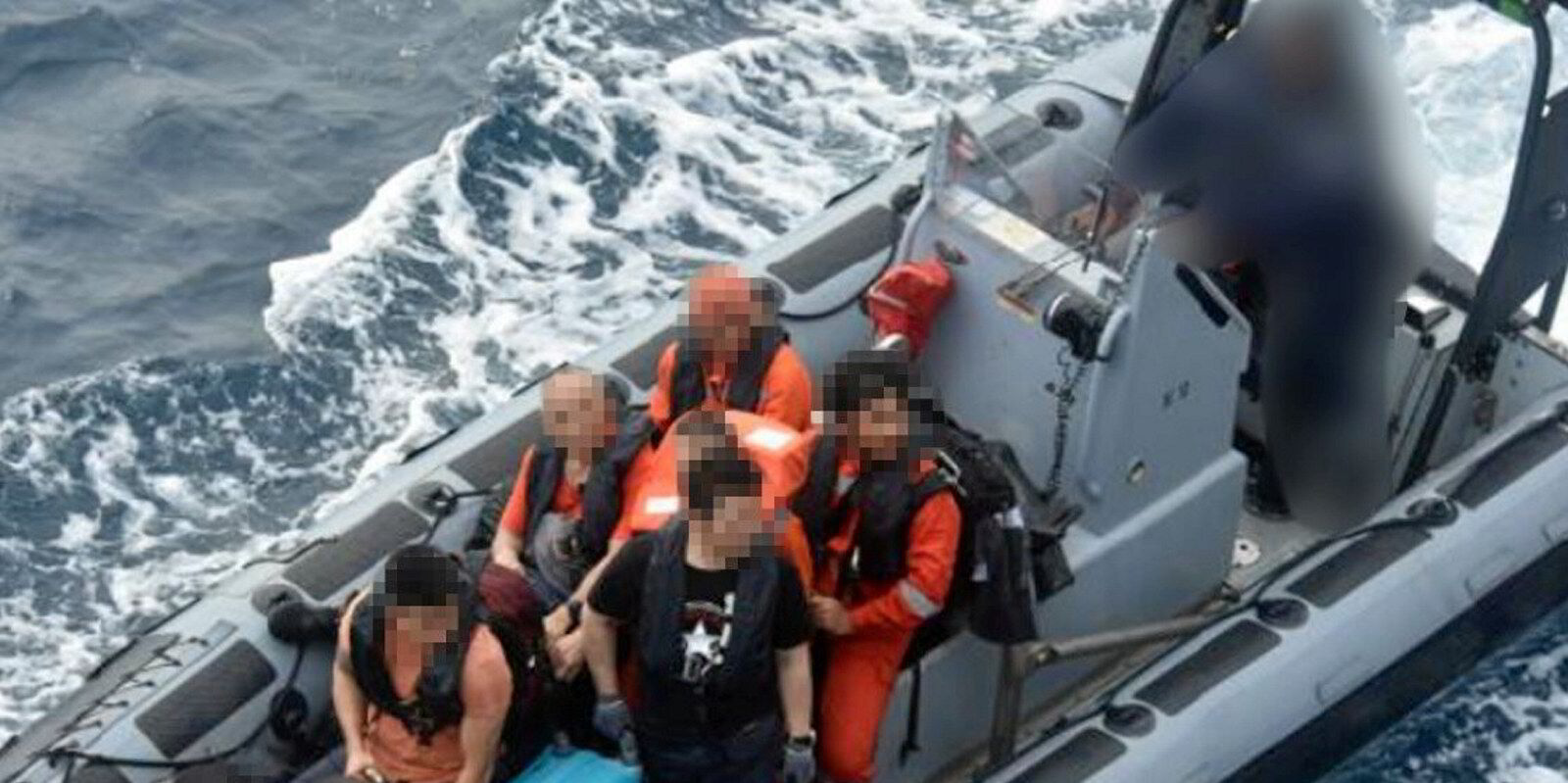
“Houthi supporters including Iran would be unlikely to support continued attacks on shipping after ceasefire is in place,” researchers at the think tank’s Edward P Djerejian Center for the Middle East and Center for Energy Studies said.
“In the long term, if the Houthis began a similar campaign down the road, it might not produce the same domestic and regional popularity, as ultimately the disruption in the Red Sea negatively impacts local audiences and reduces aid flows as well.”
Sounion crisis
Noam Raydan, a senior fellow at the Washington Institute for Near East Policy, addressed the situation facing the 164,000-dwt suezmax tanker Sounion (built 2006), which was first attacked on 21 August and has been the centre of oil spill fears.
She urged diplomatic pressure on the Houthis to prevent an environmental catastrophe.
Raydan said that when ships are disabled, as in the case of the Sounion — after it now appears that militants later boarded the vessel to plant explosives — naval forces should prevent Houthis from returning to the scene.
And she said they should consider escorts for Israel-linked ships.
“Although commercial ships cannot be forced to request naval escort, those that are especially vulnerable to attack should be asked to seriously consider this option,” said Raydan, whose organisation is known for a pro-Israel stance on foreign policy matters.
“For example, naval missions operating in the region could add language about the importance of escorts in the regular guidance statements they issue to commercial vessels in the area, particularly while the Sounion is awaiting salvage.”
